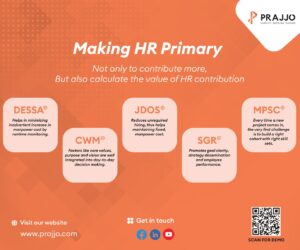Salesforce announced that it is a Net Zero company across its full value chain and has achieved 100% renewable energy for its operations. Salesforce developed emissions reductions strategies across Scope 1, 2, and 3 in four key categories—work from anywhere, infrastructure, business travel, and supply chain.
Salesforce is also unveiling Sustainability Cloud 2.0 to accelerate customers’ path to Net Zero, empowering organizations to track and reduce their carbon emissions and become a sustainable business. New innovations include Slack-First Sustainability for better collaboration with suppliers, a carbon-offset ecosystem, and industry specific climate action plans.
“Climate change is one of the most pressing crises we face as a planet, and each one of us has a responsibility to help,” said Marc Benioff, CEO and Chair, Salesforce. “I’m proud that Salesforce is one of the few companies to have achieved Net Zero and 100% renewable energy, but we can’t stop until we embrace every solution and get every business on board. Together, we can sequester 100 gigatons of carbon by restoring, conserving or growing 1 trillion trees; energize an ecopreneur revolution to develop innovative climate solutions; and accelerate the Fortune 1000 to reach Net Zero.”
“Climate change impacts everyone and everything, and it disproportionately impacts the poorest and most vulnerable, amplifying global inequality,” said Suzanne DiBianca, Chief Impact Officer and EVP of Corporate Relations at Salesforce. “Sustainability Cloud supercharged our path to Net Zero, and we’re empowering customers with the transformational tools and trusted data they need to reduce their carbon emissions and take climate action.”
Sustainability is essential to becoming a trusted enterprise. Customers want to do business with companies that are fully committed to climate action. In fact, 58% of people are willing to spend more with businesses that fight climate change.
Salesforce Expands Net Zero to its Entire Value Chain (Scope 1, 2, and 3) Salesforce is continuing to drive towards a 1.5°C future by focusing on six sustainability priorities: emissions reduction, carbon removal, trillion trees & ecosystem restoration, education & mobilization, innovation, and regulation & policy.
Today, the company is releasing its Climate Action Plan to offer a blueprint for others to accelerate their journey to Net Zero.
“We need bold and urgent action if we are to deliver the promise of Paris and a healthier, cleaner, more resilient zero carbon world in time. Salesforce has shown significant leadership in climate action through their innovation, supply chain decarbonisation and policy advocacy work, and I encourage businesses around the world to step up now and join us in the Race to Zero emissions,” said Nigel Topping, UN High Level Climate Champions for COP26.
Salesforce achieved Net Zero emissions by:
- Committing publicly to the shared, global goal of achieving a just and equitable transition to Net Zero, in line with a 1.5°C future.
- Prioritizing reducing emissions as quickly as possible and aligning its own full value chain emissions (Scope 1, 2, and 3) to the global trajectory of ~50% emissions reductions by 2030, and near-zero emissions by 2040. With Sustainability Cloud, Salesforce identified the most impactful opportunities to lower its carbon footprint.
- Compensating for any remaining emissions by purchasing renewable energy and carbon credits of high credibility, impact, and co-benefits. In the long-term using removal credits only and in the near term using a combination of avoidance and removal credits.
In 2021, Salesforce achieved 100% renewable energy, purchasing enough renewable energy to match all electricity it uses globally. Since first committing to this goal in 2013, Salesforce has been working to accelerate the global transition to clean and renewable sources of electricity with the aim for a future where renewable energy is powering the world around the clock.
To address climate change, businesses need to decrease emissions and increase carbon removals from the atmosphere. Salesforce is focused on deploying natural carbon removal tools, including trees and oceans, while scaling technology-based carbon removal solutions. From ecopreneurs to enterprises—innovation is needed to expedite the path to decarbonization.






